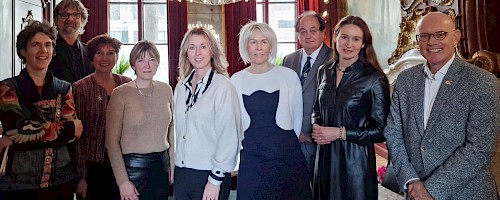We are all aware of the importance of a healthy lifestyle. However, at the same time we also experience many difficulties when we are trying to change our behavior to become more healthy. For example, more often than not our good intentions to exercise more or to eat fewer unhealthy snacks fail miserably within a relatively short time span. We study what determines whether or not people are able to stick to their good intentions and make healthy decisions such as eating healthily, exercising, and going to bed on time. We explore why doing these things and persisting to do so over time is so difficult and why we have such difficulties changing our routines or resisting immediate temptations that stand in the way of our long-term health goals. In addition to understanding what is driving our (un)healthy behaviors, we also build upon this knowledge by developing and testing strategies and interventions designed to help people in becoming healthier. One group of strategies focuses on the individual and involves motivating people and providing them with the necessary skills to help them self-regulate their behavior in the face of temptations and other distractions. Another group of strategies focusses on the environment that influences our choices and is geared towards making the healthy choice the easy choice by using strategies such as nudging.
Background
Insight into the contextual and psychological mechanisms driving (un)healthy behavior is necessary in order to develop effective strategies and interventions that promote healthy behavior. With this research line we aim to improve our understanding of the psychological and environmental factors that make an individual successful or unsuccessful in behaving healthily and in maintaining healthy behavior in the long run.
For example, we study how (un)healthy habits are formed, and which factors promote habit formation and breaking. We also try to understand the role of motivation and self-control in predicting health behavior and how contextual factors may affect motivation and self-control and their effect on behavior. Building on this knowledge about the determinants of (un)healthy behavior, a large part of our research involves exploring how we can aid individuals in their efforts to behave more healthily. In doing so, we design and test various self-regulation strategies for their effectiveness in promoting the chance that efforts to change health behavior are effective and that healthy habits are established and unhealthy ones are broken.
However, behavior is not only influenced by individual motivation and capacities, but also by the environment or the ‘choice-architecture’. Nudges are an umbrella term for strategies that make use of this insight by altering the environment in such a way that it becomes more likely that individuals make a desired (healthy) choice. We study when and how nudges can be effectively applied to promote healthy decisions, but also how and for whom they work and when and why nudges are deemed acceptable.
Of note, within this research line we adopt a broad definition of health that includes the health of our natural environment as this is inseparable from human mental and physical health and wellbeing. There is increasing interest and need for research that contributes to protecting and promoting health through increasing health resilience to climate risks and prioritizing mitigation climate actions. Part of this research line therefore also involve questions related to sustainability or climate action.
While knowledge about behavior is indispensable when trying to promote healthy lifestyle and prevent disease, to actually effectively improve population health through lifestyle changes, an interdisciplinary approach connecting care providers, the medical sciences, public health, data science, as well as governance is required. Projects and research lines where we integrate our knowledge about behavior and behavior change in an interdisciplinary effort to promote health and wellbeing are described under the Topic: Population Health
For more information, click here




